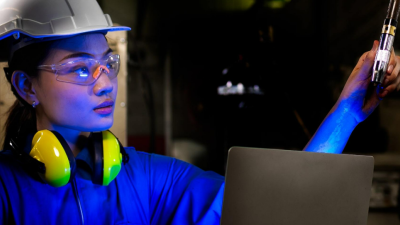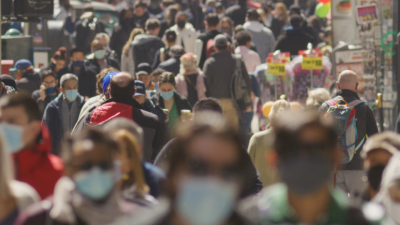
Engineering sector needs ‘education overhaul’ to ensure its long-term future
Lloyd's Register Foundation launches new report with the Royal Society for the Arts exploring skills needed for the safe adoption of emerging technologies in engineering.
This page is approximately a 4 minute read
This page was published on

Nearly £1 million has been pledged by global safety charity Lloyd’s Register Foundation to expand the influence and impact of the Risk Know-How framework
Nearly £1 million (£918,070.00) has been pledged by global safety charity Lloyd’s Register Foundation to expand the influence and impact of the Risk Know-How framework – a body of best practice tools and resources that help people and communities navigate risks in their own contexts and make effective decisions.
Responses to issues like unsafe food, hazards in the workplace and disasters arising from natural hazards such as floods all relate to people’s understanding of risk. Often there is vital information available related to these risks that can protect people from harm, however it is often inaccessible to the communities at risk or poorly communicated.
Risk Know-How was launched in 2021 in partnership with Sense about Science. By bringing together risk practitioners around the globe and unifying around a single concept of how to understand risk, the project provided a means to be able to track and measure how a better understanding of risk can improve safety standards.
The next phase of the project aims to scale up and expand the current remit of the Risk Know-How project, rebuilding the framework platform to provide on-demand resources that help community practitioners mediate evidence about risks.
This will be done through six key activities:
Investment in this ambitious new chapter for the initiative marks a renewed commitment from Lloyd’s Register Foundation and long-term partners Sense about Science and IPUR to increase the public’s understanding of risk and improve the quality of individual, business, and political decisions in the face of risk.
Our vision to engineer a safer world has people at its heart. Everyone deserves to be safe and to feel safe. By ensuring that the relevant information is distributed to at-risk individuals and families effectively, and risk practitioners receive the training they need, the Risk Know-How programme will help improve lives in many vulnerable communities around the world. We're excited to be supporting the expansion of the programme in partnership with Sense about Science.
Our goal is to further shape the framework around the needs of practitioners, to embed it so that there is consistency in risk communication and training, and to put community needs centre of mind at the major information providers. We are delighted to be working with the Foundation, who have been admirably fearless in confronting what we really do and don’t know about the way communities use information about risks.
Risk information can get lost in the gulf between the organisations that produce the information and the communities that need to use it. With Risk Know-How, we aim to bring the risk information providers closer to their users, to help these organisations understand the problems users face, and together design the formats and platforms that will allow communities to use information to take critical decisions.
Our work is dedicated to education for prevention and addressing gender-based violence in Chile. As a result of covering issues such as comprehensive sexual education, violence in digital spaces and gender and sexual diversity, we are highly exposed to attacks and hate speech, which have had a resurgence throughout Latin America and the world. In this sense, initiatives such as Risk Know-How are extremely valuable and a contribution to our actions, by creating a space to talk and get tools to address the risks. In addition, it will provide tools that can contribute to our daily work, such as making materials and information more accessible to the communities we work with.
To learn more about the Risk Know-How project and how it’s making the world a safer place, visit the website.